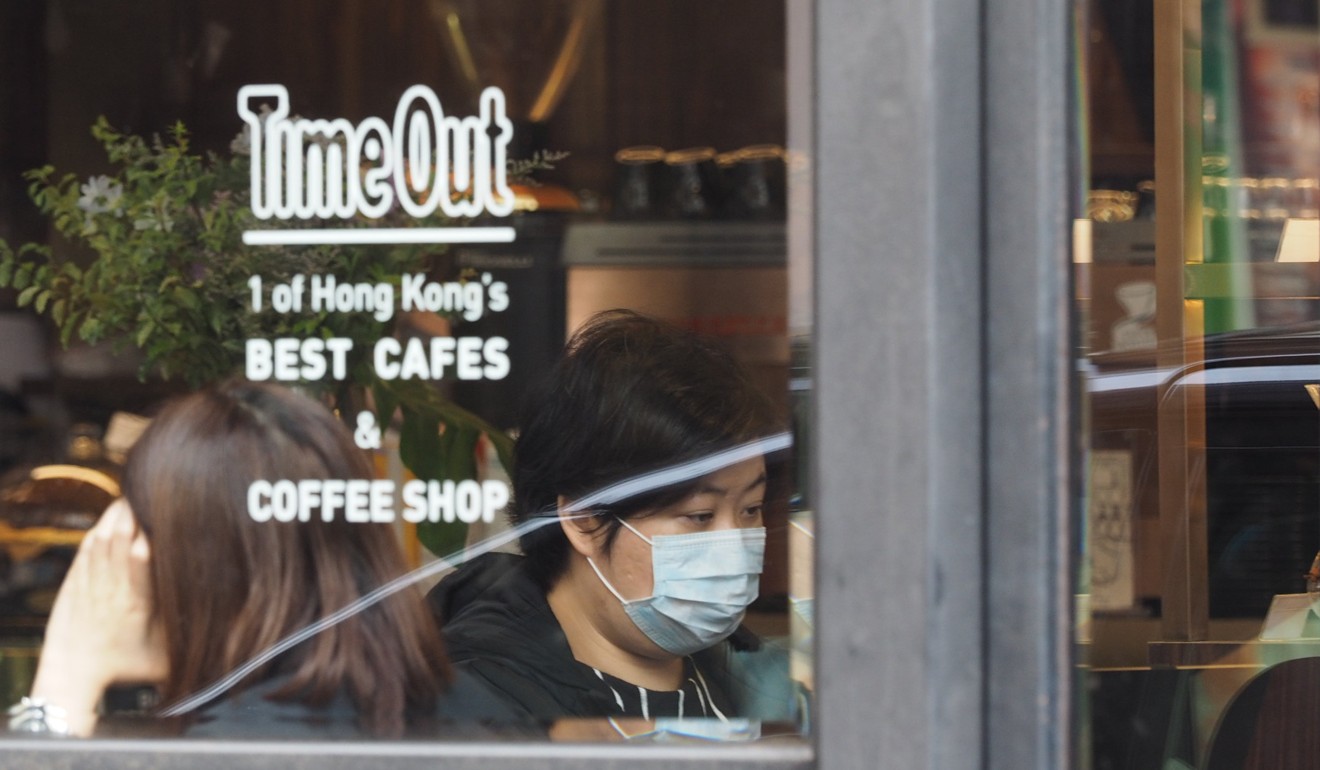
As the coronavirus spreads globally, packed restaurants and handshakes show Hong Kong is getting complacent
- While mask wearing is still ubiquitous, more Hongkongers are venturing out to restaurants and social gatherings. Meanwhile, Covid-19 continues to spread and the risk of contracting it is still high
Some people in the block I live in are under home quarantine. A number of restaurants in the area have closed temporarily due to the lack of customers; one has shut down for good.
But while the streets have, for two months, been akin to those of a ghost town, life is fast returning to normal. One restaurant I occasionally go to is again packed at lunchtime with workers from nearby offices. Coffee shops are doing a brisk trade before and after office hours.

People are still wearing masks on the streets and in lifts, but they are only too happy to remove them and sit, elbow to elbow, at the usual tightly packed tables, for a meal and a chat. Horror of horrors, a neighbour I had not seen for some time even reached out to greet me with a handshake.
How Hong Kong parents are coping as coronavirus keeps schools closed
How virus, protests soured expat dream in bitter blow for Hong Kong talent pool
As for that attempted handshake – well, for me, it spoke volumes of just how blasé some Hongkongers have become. I’ve never been fond of the custom, which dates to past centuries when people carried knives and other sharp instruments for protection; exposing the “good” hand in greeting was proof no harm was meant.
But as the severe acute respiratory syndrome epidemic in 2003 showed, touching hands is also a perfect way to spread disease. Confronted by Covid-19, the world is now relearning about the elbow and fist bump, foot shake and my preferred method, the slight bow. Japanese had it right all the time.
Discarded face masks on footpaths and escalators, and the thousands washing up on beaches or being found near hiking trails, are further proof that lessons haven’t been learned.
We don’t need to panic buy any more and masks are not as difficult to come by – or at least we’re more willing now to pay inflated prices than before – but that doesn’t mean the risk is any less. We’re still learning about this coronavirus and no cure exists. The worst we can be at this time in its evolution is complacent.
Peter Kammerer is a senior writer at the Post

